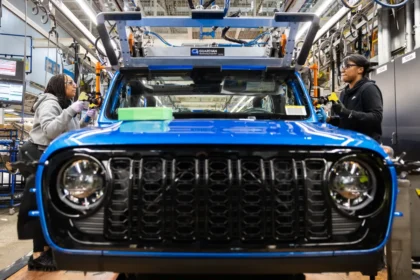Robinhood has announced the launch of “Robinhood Social,” a new copy trading feature that marks a significant shift from the company’s previously cautious stance on such platforms. The feature will allow users to follow and manually replicate trades made by prominent investors.
This move is particularly noteworthy given CEO Vlad Tenev’s comments just nine months ago, when he suggested that smaller copy trading platforms like Dub could only operate because they were flying “under the radar” of regulators. At the time, Tenev warned that copy trading could attract increased regulatory attention.The announcement comes amid ongoing criticism from competitors.
Steven Wang, the 23-year-old founder of copy trading app Dub, has positioned his platform as more education-focused, arguing that making trading accessible without proper guidance essentially amounts to gambling for most users.Robinhood’s approach differs from existing platforms like eToro and Dub.

Related: Harmonic,Robinhood CEO’s New AI Bot Promises No Math Mistakes.
While those services offer automatic copying features, Robinhood Social will require users to manually replicate trades – a design choice likely intended to address regulatory concerns. The platform will feature verified traders and showcase activities of famous investors and Congressional members, with identity verification required for all participants.
The company plans to begin with 10,000 beta users before expanding the service, which is scheduled to launch early next year. This timing coincides with what appears to be a more favorable regulatory environment, particularly following the Trump administration’s crypto-friendly policies and the recent success of platforms like eToro, which raised $310 million in its May IPO.
The launch could signal broader industry changes, potentially opening doors for other fintech companies to enter the U.S. copy trading market that has long been restricted compared to European markets.





